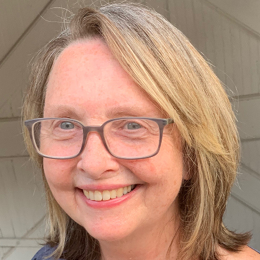 Lucia Hanmer | Chair
Lucia Hanmer | Chair
Lucia Hanmer is a Lead Economist in Gender and Development Unit at the World Bank where she leads work on fragility conflict and violence. Most recently she has been leading the Gender Dimensions of Forced Displacement research project and also leads work on gender for the World Bank’s Identity for Development (ID4D) Initiative. Previously she was a a senior economic advisor in Chief Economists Office at the UK’s Department for International Development. She has also served as the Country Representative for the World Bank in Guyana. Before moving into development policy, she was a researcher at the UK’s Overseas Development Institute and taught economics at the Institute of Social Studies at The Hague, The Netherlands.
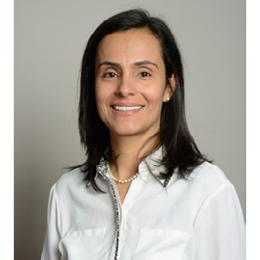 Isabel Ruiz | Presenter
Isabel Ruiz | Presenter
Isabel Ruiz is a Fellow in Economics at Harris Manchester College and the Blavatnik School of Government at the University of Oxford. Her research interests are on development, labour, and political economy, with a particular focus on forced migration. She is an academic lead of the ECONFORCED project, a research initiative which provides evidence on the impacts of displacement on host communities, the displaced and the communities of origin. Isabel is also an Associate Editor of Oxford Review of Economic Policy (OxREP).
 Sophie Scharlin-Pettee | Presenter
Sophie Scharlin-Pettee | Presenter
Sophie Scharlin-Pettee is a Policy Officer at the Oxford Poverty & Human Development Initiative (University of Oxford). She currently supports the outreach team in policy programming. She also coordinates the writing and publication of the annual global Multidimensional Poverty Index (global MPI) report, having previously contributed to the data preparation, computation, and analysis of the first large-scale project on trends in multidimensional poverty. She holds a MSc (Sociology) from Oxford.
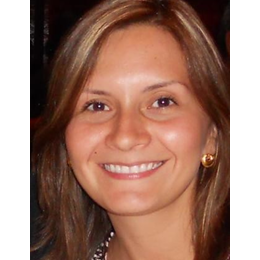 Eliana Rubiano-Matulevich | Presenter
Eliana Rubiano-Matulevich | Presenter
Eliana Rubiano-Matulevich is an Economist with the World Bank Poverty Global Practice (GP) and the Regional Gender Coordinator for the Latin America and the Caribbean Region. Eliana holds a Ph.D. from Maastricht University School of Business and Economics, a Master’s degree in Public Administration from Columbia University and a Master’s degree in Economics from Universidad Javeriana in Bogota (Colombia).
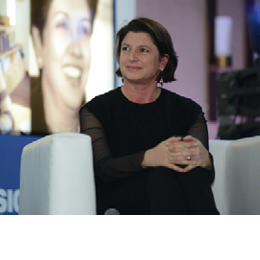 Ana María Ibáñez | Presenter
Ana María Ibáñez | Presenter
Ana María Ibáñez is a Principal Economics Advisor at the IDB. She is the former Dean of the School of Economics at Universidad de los Andes and the Director of the research center (CEDE). Her research concentrates on the microeconomic analysis of internal conflict and migration. She studies the economic consequences of internal conflict, in particular the costs of war and conflict upon the civil population. The other strand of her research explores the causes and consequences of forced and economic migration.
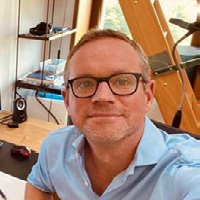 Sam Gundry | Discussant
Sam Gundry | Discussant
Sam Grundy is a recovery and transition expert, with 18 years of experience working predominantly in Africa, in displacement affected contexts. Since joining IOM in 2006, Sam has overseen programmes supporting durable solutions for internally displaced persons in Darfur, South Sudan, Malawi, Zimbabwe, Sri Lanka, Iraq, Somalia and Ethiopia. Sam’s work has focused particularly on providing technical assistance to states hosting IDPs, including through supporting the Government of Malawi to develop the IDP Durable Solutions policy; training the Government of Iraq and interagency community on durable solutions; contributing to the national Durable Solutions Initiative (DSI) in Somalia, through the establishment of the government-led ‘’Midnimo’’ (Unity) project, a UN joint programme for Durable Solutions; and most recently producing the Operating Framework and workplan for resolving displacement in Ethiopia. Sam is currently head of the Transition and Recovery Division in IOM’s headquarters on transition and recovery programmes.
 Join the network
Join the network Lucia Hanmer | Chair
Lucia Hanmer | Chair Isabel Ruiz | Presenter
Isabel Ruiz | Presenter Sophie Scharlin-Pettee | Presenter
Sophie Scharlin-Pettee | Presenter Eliana Rubiano-Matulevich | Presenter
Eliana Rubiano-Matulevich | Presenter Ana María Ibáñez | Presenter
Ana María Ibáñez | Presenter Sam Gundry | Discussant
Sam Gundry | Discussant